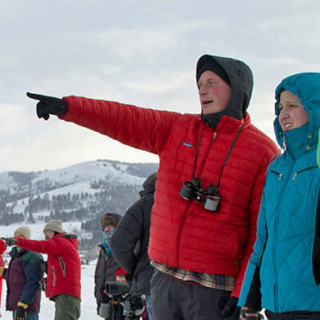STEM Faculty Mentorship
Mentorship Training
Nurture New STEM Scholars: Mentoring for Mental Health Faculty Training
Our workshop series for faculty in supporting STEM graduate student mental health is now available as an asynchronous, online training offered in Moodle: Mentoring for Mental Health Faculty Training. Faculty will be able to work through the materials at their own pace and in their own learning style, blending videos, slides, graphics, and documents supporting the work.
Delivered by UM and UM-affiliated faculty—Annie Belcourt, Bryan Cochran, Holly Schleicher—this training provides engaging and invaluable context, core values, and practical tips on managing your mentoring relationship with your students, as well as injecting practices in support of wellbeing into the lives of both you and your students. Faculty who complete the course will earn a certificate, which we will encourage Chairs, Deans, and the Provost to recognize formally as evidence of professional growth and development.
But most importantly we hope you will invest some time in a training that will positively impact your relationships!
To learn more about the training, listen to the following Confluence podcast episodes with our featured trainers, Holly Schleicher, Bryan Cochran, and Annie Belcourt.
You can also learn more about Bryan and Annie in the full interviews we released with each of them: Episode 29 with Annie Belcourt and Episode 86 with Bryan Cochran.
You can also see the topics covered in a past version of the training below.
Those who complete the training, which should take about 4 hours, will be invited to attend two spring lunch sessions with food where our UM trainers will be available to consult, answer questions, and moderate discussion on integrating these principles into your mentorship practice.
Past Workshop: Spring 2023
This 3-part workshop series, grounded in research about graduate student mental health and well-being, is designed to address the importance of mentorship relationships, success in mentorship, and the critical need to prioritize well-being in academia. Participants will acquire skills that will allow them to support their students (and themselves!) through the rigors of an academic STEM program. Workshops will include research presentations, case studies, and dynamic discussion oriented toward engaging faculty with practical, applied skills in active listening, effective communication, and de-stigmatizing mental health discussions.
Funded by an NSF-funded collaborative grant, the series will be delivered by UM faculty and researchers with expertise in Clinical Psychology, Community Health, and Integrated Behavioral Health: Dr. Annie Belcourt, Dr. Bryan Cochran, and Dr. Holly Schleicher.
As preparation for this Graduate Student Mentoring Workshop, we ask all participants to register and attend the Indigenous Mentoring Workshops (IMP) on February 4 and 11 from 1-3:30 p.m., or to let us know in their registration that they have attended it previously. The principles and values in the workshop, developed to focus on support of indigenous graduate students, apply widely to graduate student mentoring.
We plan to hold these sessions in-person, but will pivot to Zoom if COVID cases dictate.
REGISTRATION
To register for this workshop through the Office of Organizational Learning and Development, please complete this short form.
AGENDA
Session 1 (February 13): Making Connections, Building Context: Insights into Graduate Student Mental Health and Wellbeing
We will share insights into the realities facing STEM graduate students in 2022 through data on student wellbeing, career expectations, and potential obstacles in this workshop. We will discuss how to talk with your advisees about these relevant issues from an informed and empathic perspective.
Session objectives:
- Learn about common mental health difficulties that might impact people in academic careers.
- Discuss how current issues impact the experience of graduate student advisees.
- Practice ways to talk with graduate student advisees about likely stressors and potential impacts on their health.
Session 2 (February 27): “I Don’t Have Time for this Workshop!” Making Space for Faculty and Student Wellbeing
We will discuss and define faculty and student wellbeing and success within the mentor relationship. We will identify signs and symptoms of burnout and apply skills personally and in the mentor relationship to decrease the impact of burnout and enhance academic wellbeing and success, employing a strength-based, rather than deficiency, model.
Session objectives:
- Define and identify the facets of wellbeing, success, and burnout among faculty and students
- Employ skills to enhance wellbeing and success, personally and with students
- Develop skills for discussing and addressing wellbeing and success with students
Session 3 (March 13): Be the Mentor Your Students Need and Want: Skills and Strategies for Successful Communication with Your Graduate Students
We will further develop skills of communication with students, focused on destigmatizing discussion of wellbeing and mental health. This session will refine specific techniques for self-care, de-escalating, and referral to appropriate support resources.
Session objectives:
- Identify faculty anxieties about communication, and address tools to overcome them.
- Develop skills for de-escalation of student crisis situations.
- Identify and appropriately refer students to support resources.
